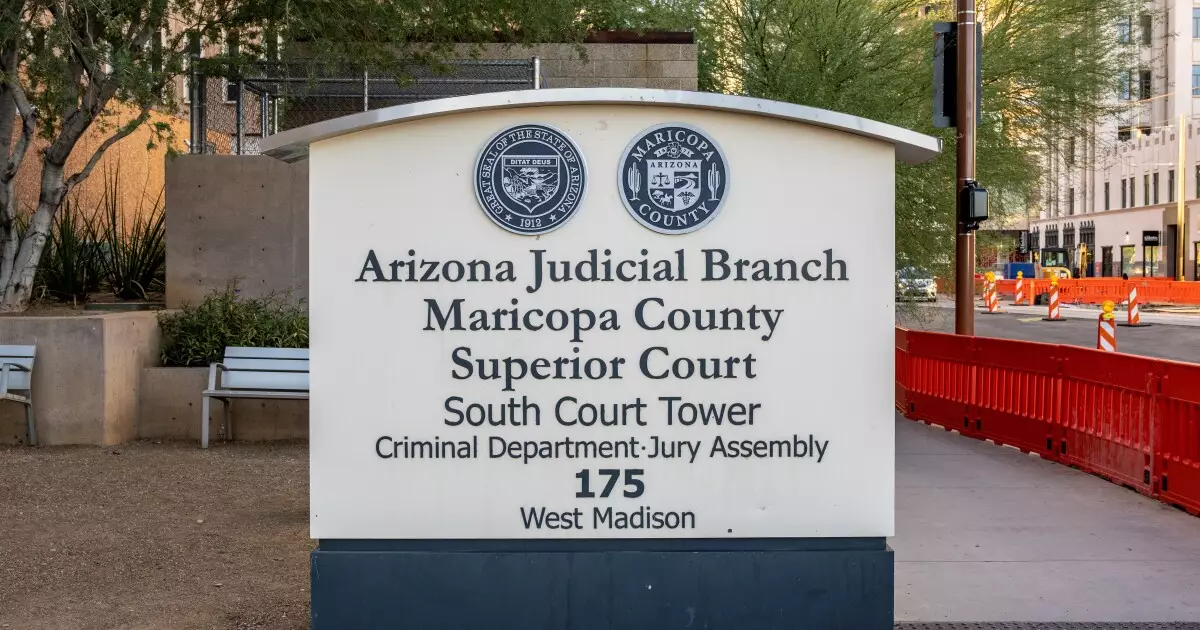Legal Challenges Emerge Over Tax Hikes in Gilbert, Arizona

In a significant legal move, the Goldwater Institute has initiated a lawsuit against the town council of Gilbert, Arizona, claiming that the recent tax hikes on essential services are in direct violation of the state constitution. Filed in Maricopa County Superior Court, this case not only underscores ongoing tensions regarding local governance and fiscal policy but also reflects broader concerns about public resources and transparency in municipal operations.
The Gilbert town council approved increased tax rates on sales, uses, and lodging, set to take effect on January 1. This decision was motivated by stated needs for additional funding to support crucial infrastructure projects, estimated to cost around $700 million. The council aimed to generate approximately $55 million annually through these tax adjustments, casting them as necessary for the maintenance and development of community assets including parks and public safety enhancements.
However, the legal claim asserts that the Arizona Constitution explicitly prohibits local government entities from imposing or increasing transaction-based taxes on services rendered within the state. This challenge signals a more significant debate over the scope of local government authority regarding taxation and spending.
According to the complaint filed by the Goldwater Institute, the imposition of these taxes contravenes constitutional limits placed on local municipalities. The lawsuit articulates concerns over the potential precedent such decisions could set, wherein local governments might overreach their authority under the guise of funding needs. If the court finds in favor of the plaintiffs, it could halt the tax increases and compel Gilbert to reassess its fiscal strategies.
This lawsuit also interconnects with another legal battle involving the neighboring town of Payson, which faced scrutiny for proposing a substantial bond issuance without meeting constitutional guidelines. Although that case was rendered moot, it amplifies the concern regarding how municipalities are maneuvering around existing legal frameworks to meet financial demands.
Local sentiment regarding the tax increases is mixed, with some residents expressing support due to the perceived necessity of improvements in public infrastructure. Others, however, are alarmed at the prospect of increased financial burdens on households, especially in light of Gilbert’s already significant outstanding debt, noted at nearly $280 million in general obligation bonds at the close of fiscal 2023.
In an era where financial transparency and responsible governance are prioritized, the lawsuit raises pressing questions about the balance between necessary municipal funding and the rights of taxpayers. The challenge emphasizes the necessity for local governments to engage effectively with residents and consider their input when making financial decisions that will directly affect their quality of life.
As the lawsuit unfolds, its implications will likely reverberate throughout Arizona’s local governments. Should the Goldwater Institute succeed, it may not only change Gilbert’s constructs for infrastructure financing but also serve as a precedent influencing municipal fiscal policies statewide. This situation serves as a stark reminder of the delicate balance required in local governance—wherein the needs for development must align with legal frameworks and the rights of citizens. As this legal battle progresses, communities will keenly observe the outcomes, which could reshape the narratives and structures of local taxation and government spending in the future.





